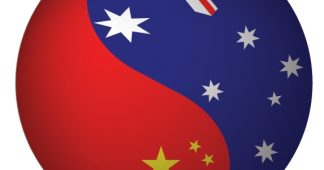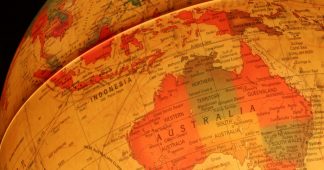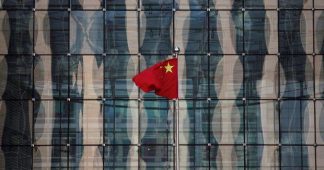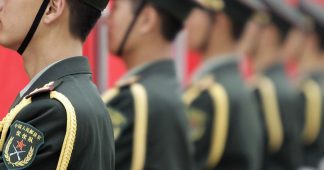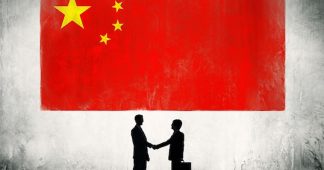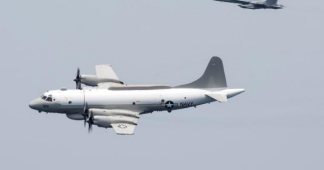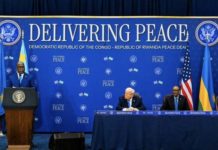Witch hunt in Australia against Chinese-born parliamentarian
By Peter Symonds
12 December 2018
Over the past week, an extraordinary media campaign of smear and innuendo has been mounted in Australia targeting Pierre Yang, a state Labor parliamentarian in Western Australia (WA), for links to Chinese community organisations allegedly in thrall to Beijing.
The attack on Chinese-born Yang is part of far broader witch hunt over the past two years aimed at silencing any, even limited, criticism or opposition to Washington’s escalating confrontation with Beijing and preparing for Australia involvement in a US-led war against China.
Murdoch’s flagship, the Australian, published an article on December 3 with the misleading headline “MP Pierre Yang ‘overlooked’ ties to Chinese Communist Party” based on unnamed sources—that is, those connected directly or indirectly to intelligence agencies.
Yang’s supposed ties to the Chinese Communist Party (CCP) consisted of his membership of two organisations—the Northeast China Federation Inc and the Association of Great China. Their “crimes” were to advocate for China’s Belt and Road Initiative infrastructure project, in the first case, and to support China’s territorial claims in the South China Sea.
In the current poisonous climate being whipped up by the media, any questioning of Washington’s provocative stance or sympathy for China’s policies is treated as tantamount to disloyalty or worse. No evidence was provided that Yang himself held such views. His supposed wrongdoing was the failure to declare his memberships to the parliamentary interest register.
A second scurrilous article appeared in the Australian on December 5 entitled “WA Labor MP Pierre Yang served aboard suspected China spy ship.” Anyone reading the headline could be excused for believing that Yang was suspected of being a Chinese spy—which the newspaper itself, no doubt to avoid a possible libel suit, denied was the case.
However, the insinuation was clearly there. The article reported that the Labor MP had “spent three months on a Chinese government vessel hunting for Malaysian Airlines MH370 that security experts suspect was spying on the Australian military.” In reality, Yang was a captain in the Australian army reserve who was deployed on the Chinese search-and-rescue ship as a liaison officer because of his fluency in Mandarin.
Moreover, the article beefed up the allegations of his connections to “pro-China groups” even though he had cancelled his memberships as a consequence of the previous article. “Sources with a deep understanding of Perth’s Chinese community,” it declared, “believe Australia’s security agencies are monitoring Mr. Yang’s network of associates, many of whom are viewed as sympathetic to the CCP.”
In a tearful speech to parliament the following day, Yang denied any wrongdoing, declaring that it was an oversight that he had not declared his memberships. In line with the nationalism that saturates the Labor Party, he said that he was “deeply hurt” that his loyalty to Australia was in question. In what amounted to a grovelling appeal to Murdoch’s Australian, he declared: “I have the utmost respect for the media and the press.”
State Labor Premier Mark McGowan came to Yang’s defence, saying he was “a fine Australian, a good West Australian, a good member of parliament.” State Labor president Carolyn Smith backed the MP against accusations that he had been involved in stacking Labor branches with Chinese-Australians, and said the campaign had a “tinge” of xenophobia.
There has been no let up, however. And there is more than a tinge of xenophobia. Last Friday, the Australian alleged that Yang’s mentor, businessman Edward Yang, was “linked to Chinese communists.” It cited Clive Hamilton, who declared: “There are hundreds of Beijing’s agents throughout Australian politics, universities, public service and business.”
Hamilton is the author of Silent Invasion, which suggests that the majority of Australia’s 1.2 million people of Chinese descent are not loyal to Australia, and that prominent business and political leaders are “fifth columnists” for Beijing. The racist implication is that anyone born in China or of Chinese descent is under a cloud of suspicion as a “Chinese agent.”
The purpose of the campaign of slurs against Yang is not yet clear. An Australian article today indicates that the real target could be WA state premier McGowan, who was allegedly warned of potentially “severe” consequences to national security of awarding a contract to the Chinese tech giant Huawei to build a communications system for Perth’s rail network. That McGowan, who travelled with Yang to China this year, ignored the warning, immediately puts him under suspicion.
Washington has been waging a campaign internationally to brand Huawei as a “security threat” and pressuring governments to ban the use of its equipment. At the Trump administration’s behest, the Canadian government has detained Huawei’s financial controller Meng Wanzhou for allegedly breaching unilateral US sanctions on Iran.
A broader issue is involved however. The witch hunt against Yang follows the passage in July of draconian “foreign interference” legislation, which criminalises any conduct in collaboration with foreign bodies or governments that could be construed as influencing Australian politics or threatening “national security.”
To justify such sweeping measures, the passage of the laws was accompanied by a vicious media campaign against those who Hamilton brands in his book as “capitulators,” “appeasers” and “amigo” of the Chinese regime. A wartime atmosphere is being whipped up akin to that of World War I and World War II when opponents of the imperialist slaughter were detained and thousands of “enemy aliens” were interned.
Having rammed through the laws, with the support of the federal Labor opposition, the government, intelligence agencies and state apparatus are no doubt seeking an opportunity to use them.
